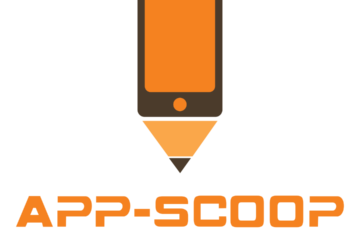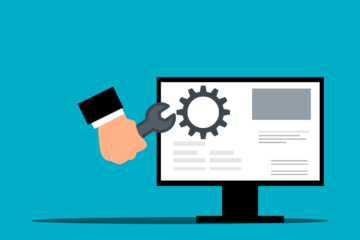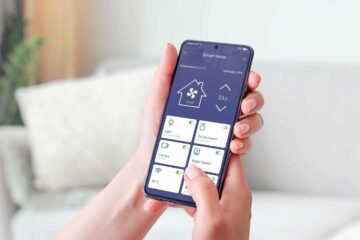Different technologies are used in different activities in medical institutions for patient care and better infrastructure.
Information technology, in particular, includes a series of systems including computers and telecommunications that are utilized to retrieve, store, and send data.
In terms of its implementation in the healthcare industry, this technology is used to handle the medical data of patients, procedures, and contact details. The advent of technology in the healthcare sector has been instrumental in discarding a lot of outdated tools.
Technicians and nurses input the data about the patient into the integrated digitized system and update test records of the patients through cloud computing. Also, doctors, patients, insurers, and other professionals can receive the procedure records and medical records efficiently.
Besides, the information-centric tasks, technology in the medical field has brought improvement in different clinical departments. Physicians can interact with patients in different locations remotely via telemedicine as well.
All in all, it is expected that medical technology growth worldwide would occur at a rate of 5% by 2022.
The following are some of the most notable benefits of technology in the medical sector.
1. Real-time information accessible to multiple users
Previously, medical professionals had to keep a note of all the patient data in paper records. To check the current or previous records, professionals had to search through the ‘chart’ room or records room.
This was time-consuming, and the misplacement of particular papers was a common issue.
With information technology, such data is available in cloud computing systems. Many medical facilities utilize a secure shared network for information storage, and different hospital personnel can access this information. And connectivity is available through multiple types of digital devices.
Such information in the EHRs are available in real-time, which benefits critical patient care cases.
Features like reporting capabilities, easier communication, remote accessibility, and safety alerts allow doctors to handle patient care even when they are physically absent from the hospital premises.
2. Abundant data availability
One of the benefits of MedTech is that users get access to a vast amount of data. In terms of treatment and diagnosis management, this proves highly effective.
For example, wearable health-monitoring technology collects statistical data about a user’s daily sleep pattern, heart rate, steps taken, and exercise output. Later, it transfers the data to mobile apps. Stents and pacemakers send the automatic update codes directly via the internet.
Plus, patients use particular devices for blood glucose level, weight, and blood pressure calculation records. Overall, with MedTech apps, physicians get this information quickly and they can plan the treatment schedule.
Big Data technology syncs the aforementioned data and EHR-enabled data to create analysis records. Using this information, it is easier for medical administration personnel to spot any gaps in care management and the current population trends.
Medical professionals can view this data as a reference to optimize high-quality economical and health-related outcomes. As a result, they can utilize the best possible practices to provide individualized medical care to patients.
3. Better public health
Clinical researchers and public health care professionals use EHRs to receive maximum medical knowledge. Using these, they can create better treatment medications for common health problems and viral outbreaks.
With a centralized health IT system, healthcare officials can understand the extent of the outbreak quickly. Thereafter, they can start making preventive plans like increasing the production of medicine shots and enable their transport to the affected regions quickly.
4. Safer medical care
Medical care officials can utilize healthcare technology tools to provide optimized and accurate medical attention to their patients. Such tools contain usable features like digital balances and checks.
They also provide automatic alerts to healthcare professionals about critical patient information like their allergy history and other applied medications. This way, physicians can avoid providing wrong diagnoses and drug prescriptions.
EHRs contain a similar alert notification system that updates patient records regarding previous medical history and current medical plans. The CPOE (computerized physician order entry) system is another technological solution that assists with careful medical data collection.
5. Healthcare cost reduction
With the help of Telehealth apps and medical systems like the EHRs, the healthcare cost has reduced a lot. Plus, patients don’t have to visit doctors one-on-one necessarily. They can use the apps and take up counselling.
There has been a rapid surge in healthcare apps after the covid-19 breakout because patients were restricted to visit doctors until the case was of absolute necessity.
One study showed that using EHRs for patient care had decreased the outpatient care funding cost by 3%.
6. Medication reconciliation
Another benefit of the EHRs is that it operates as an automated digital medicine catalog. The reconciliation tool within it allows medical professionals to develop a proper medication list and maintain it easily.
While this tool is useful for assessing patients’ medical history, it only includes medications available within the network or system. Maintaining absolute accuracy in the list management is dependent on the memory of the patient about their medical history.
However, this is not the easiest tool to handle during an emergency case as physicians would not get the complete list of medications the patient is using.
But new software versions are available now, which are more comprehensive. These include pharmacy apps that collect data about medication pick-ups and dosage changes. Moreover, the app compiles all the real-time information and creates a visual list.
Most of the data is derived from the fulfillment needs of pharmacies. These types of data include missed refills, pickup dates, and changes in dosage. With proper reconciliation tools, it is easier to create transparent reports of the medication regimens of users, improve usage continuity, and reduce incorrect medication usage.
7. Better connectivity
With the use of technology, health care providers can communicate better with patients, quickly and effectively. Patient visits can occur over the digital platforms in case the patient is incapable of visiting as well.
After returning from a doctor’s appointment, patients often have extra doubts regarding the treatment care they are following. Many individuals have questions about their health condition and a diagnosis for certain small-scale problems. Visiting the hospital is not necessary for these.
A medical app, in this case, works as a medium of communication between the doctor and patient for clearing simple queries.
Moreover, after hospitalization and discharge, medical professionals require steady contact with patients to guide them with their recovery process. These apps are useful here as they include features like an integrated algorithm that identifies at-risk patients for remission.
The apps send alerts regarding such information to the physicians. Also, they transfer automated reminders to patients for following after-surgery recovery steps.
Another feature that enhances communication in this field is the patient portal. Patients can open their hospital records and medication history, online scheduling of appointments, registration, bill payment, and other details.
Using these platforms, physicians can conduct medication adherence discourse with clients after discharge and handle post-op visits.
With the Telehealth app, connectivity is possible between patients and doctors even at far-apart distances. Individuals with mobility issues or residency in a rural area can receive effective and regular medical checkups with such apps.
8. Safety and Legal Concerns Regarding Healthcare Information Technology
As mentioned above, the use of information technology has benefited the healthcare industry highly. It is instrumental in enhancing patient care during and after hospitalization; however, there are privacy-related concerns available.
Data breaches are a common threat to the medical industry. A statistic highlights that stolen health-related credentials, in particular, are worth $10 or more in the global black market. Thus, the loss of sensitive information to hackers is a serious safety concern.
To deal with this, regulations are present in local governments worldwide for regulating a safe, legally-protected, and confidential data storage as well as transfer digitally.
For example, the HIPAA privacy rule of 2003 upheld the policies concerning the disclosure of information. Other policies have been put in place since then in regards to software-based information safekeeping in the healthcare industry.
That said, developing a healthcare mobile app for your business can prove its efficacy.
How?
Let’s find out!
Reasons to develop a healthcare mobile application for your business
There are many reasons why you should develop a healthcare mobile app if you have a career in the medical field.
The following are some of the most notable benefits of healthcare apps:
● Efficient medical care: Through a medical app, doctors can access the centralized database to quickly collect the medical records of their patients, create new records, and review test results. It increases the efficiency of medical procedures and consumes lesser time.
● Easier patient-doctor communication: Through the Telehealth apps, patients can get in touch with doctors quickly to evaluate simple symptoms and perform diagnosis. Such apps may contain automated medical instructions as well.
● Customized patient care: Doctors can provide personalized treatment plans to their patients, using the data available.
● Hospital management: Internal hospital management is easier to coordinate with the help of apps. The administration staff can use the hospital app to evaluate each department’s condition, log patient and medication details, operation schedules, and set focused targets.
Since everything is better organized on the app, the staff can effectively monitor the execution of all tasks as well.
Conclusion
The application of modern technology in the healthcare sector is increasing as we speak. Be it bid data, AI, ML, or application development; each of them empower your business so you can provide unmatched services and care to your patients.
And mobile health apps are useful for various sectors in the medical field; like, medical management, fitness, personal health record-keeping, medication management, and diagnostics.
They also help improve communication, empower medical institutions, increase convenience and health awareness while decreasing medical costs, and countless other benefits.
Contact the App-Scoop Vancouver Mobile App Developers for further details.



